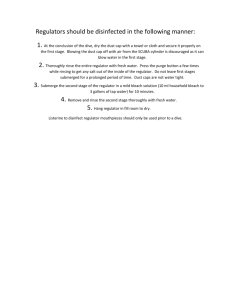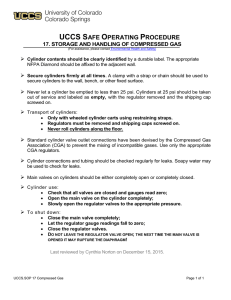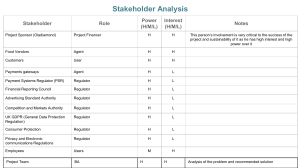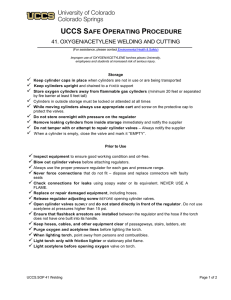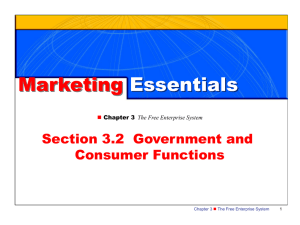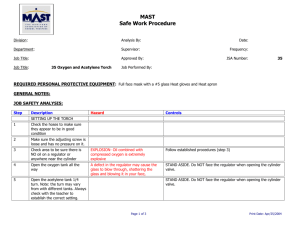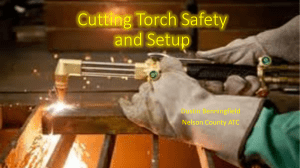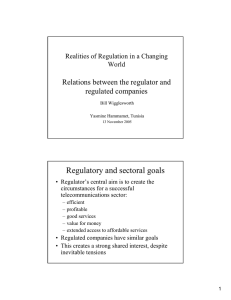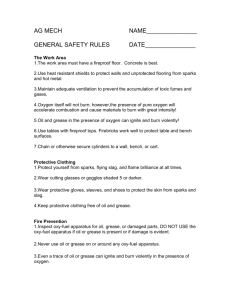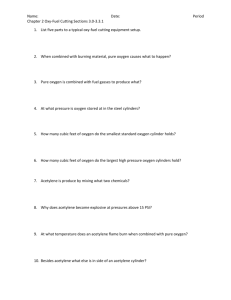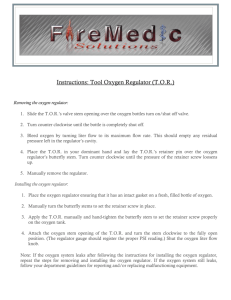Minutes of the committee meeting held on, Wednesday 12th October
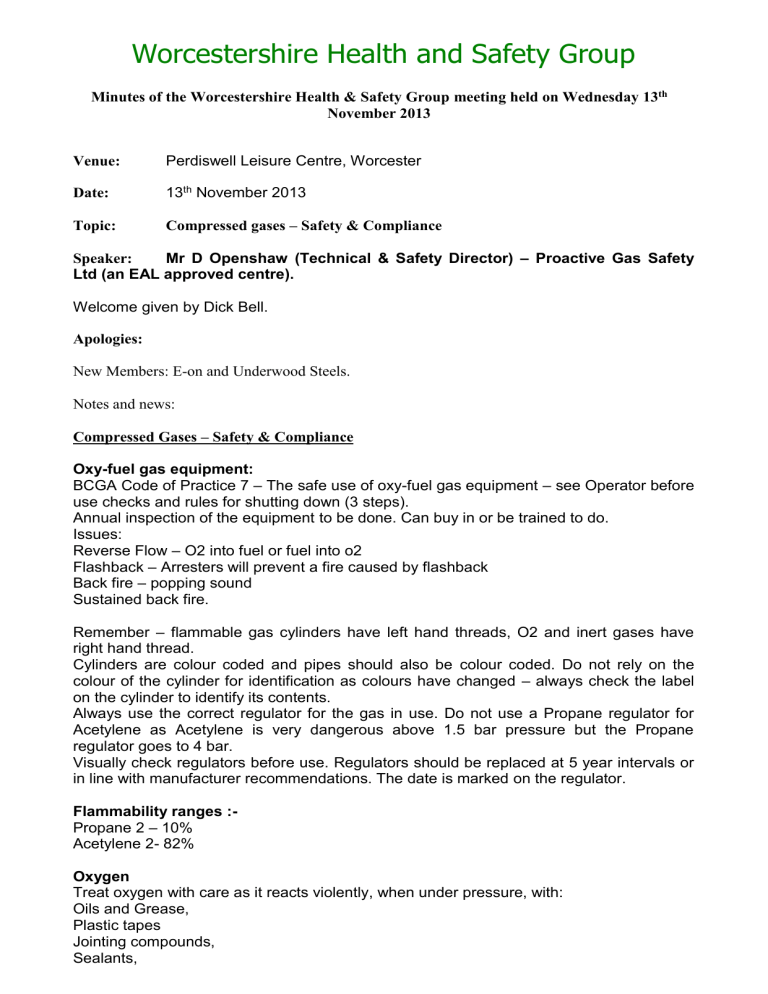
Worcestershire Health and Safety Group
Minutes of the Worcestershire Health & Safety Group meeting held on Wednesday 13 th
November 2013
Venue: Perdiswell Leisure Centre, Worcester
Date: 13 th November 2013
Topic: Compressed gases – Safety & Compliance
Speaker: Mr D Openshaw (Technical & Safety Director) – Proactive Gas Safety
Ltd (an EAL approved centre).
Welcome given by Dick Bell.
Apologies:
New Members: E-on and Underwood Steels.
Notes and news:
Compressed Gases – Safety & Compliance
Oxy-fuel gas equipment:
BCGA Code of Practice 7 – The safe use of oxy-fuel gas equipment – see Operator before use checks and rules for shutting down (3 steps).
Annual inspection of the equipment to be done. Can buy in or be trained to do.
Issues:
Reverse Flow – O2 into fuel or fuel into o2
Flashback
– Arresters will prevent a fire caused by flashback
Back fire – popping sound
Sustained back fire.
Remember – flammable gas cylinders have left hand threads, O2 and inert gases have right hand thread.
Cylinders are colour coded and pipes should also be colour coded. Do not rely on the colour of the cylinder for identification as colours have changed
– always check the label on the cylinder to identify its contents.
Always use the correct regulator for the gas in use. Do not use a Propane regulator for
Acetylene as Acetylene is very dangerous above 1.5 bar pressure but the Propane regulator goes to 4 bar.
Visually check regulators before use. Regulators should be replaced at 5 year intervals or in line with manufacturer recommendations. The date is marked on the regulator.
Flammability ranges :-
Propane 2 – 10%
Acetylene 2- 82%
Oxygen
Treat oxygen with care as it reacts violently, when under pressure, with:
Oils and Grease,
Plastic tapes
Jointing compounds,
Sealants,
Barrier and hand creams,
Butter or margarine,
Solvents and hydrocarbons.
If a regulator is contaminated replace it do not try to clean it as the regulator will explode in contact with oxygen if not absolutely clean.
Always wear safety glasses before operating a regulator.
Non-flammable / flame retardant fabrics will start to burn readily in air containing 30% oxygen.
Storage of cylinders see Gas Code 2
Store upright and in a secure place.
If not able to store externally complete a risk assessment to determine if it is safe to do so.
Note:
The official MINIMUM evacuation distance from a gas cylinder fire incident is 200 metres which can have a serious impact on the business concerned, other businesses, roads, railways etc.
After answering a number of questions Dick Bell thanked Dave Openshaw for his presentation.
The meeting closed at 15.30.
The next meeting will be on Wednesday 8 th January 2014
Minutes author: Mr S W Wilkinson
